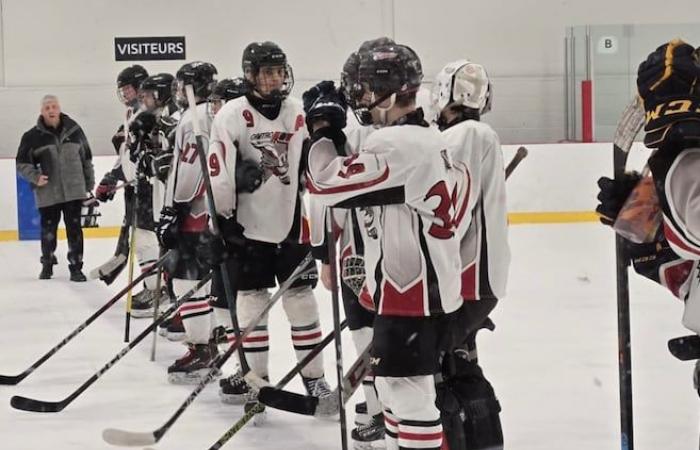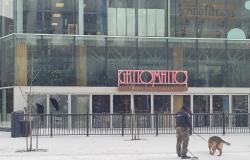On the ice at the Raymond-Bourque arena in Montreal, Saint-Laurent borough, the match went well, all in all. The final score: 2 to 2.
“A draw, almost no penalties,” summarizes assistant coach Stéphane Boisvert.
Some players, however, did not understand why they heard the word “Frogs,” according to parents. We explained to them that it was an expression a few decades old to insult French speakers.
However, it was after the game between the Trois-Rivières-Ouest Faucons and the Laval Stars that the situation degenerated. A few Stars players reportedly gave the finger as they left the ice. A player accompanied by a parent also allegedly headed towards the entrance hall where parents were present to insult them.
“And there, there was a player who came by and was very strong, he again treated us like French Frogs»
— Stéphane Boisvert, assistant coach
The player allegedly walked towards the group of parents, threatening himself, and a parent kicked Mr. Boisvert, who was not injured.
“It started to get a little worse. People were insulting each other. It was unsightly for juniors, between 18 and 21 years old.”
Stéphane Boisvert indicates that the parents questioned the organization of the tournament, which did not do anything in particular.
Our efforts to contact the Laval Stars were in vain.
Tolerance
The Nouvelliste spoke with some parents who believe that the organization of the tournament would have had a much shorter fuse if other groups had been insulted or disrespected.
-Stéphane Boisvert gives the example of homophobic insults.
“If the referee hears it, it’s automatically a five-match suspension. And it’s perfect. All the racialized and homophobic words, you’re not supposed to say them.”
— Stéphane Boisvert, assistant coach
Regulation
Hockey Quebec did not wish to comment specifically on this matter, but recalled that regulations are in place.
Code D-62 aims to eliminate discriminatory remarks, whether for example on race, origin or sexual orientation. If a referee witnesses this, the player is effectively suspended for five matches.
These punishments can occur before, during and after the match if an official witnesses them, according to the director of refereeing and player safety, Marc Maisonneuve.
“Once a blow is given to the locker room, there are no more punishments given. These are reports, investigations, which will be made in relation to the situation. There is a decision that will be made, but there will be no penalty as such.”
Still without commenting specifically on this matter, he points out that this new regulation in force for three years is here to stay.
“It is important that the players understand that we can no longer go there, in these areas, with discrimination. What was done 25, 30 years ago, on the ice, we can no longer talk to people like that.”






